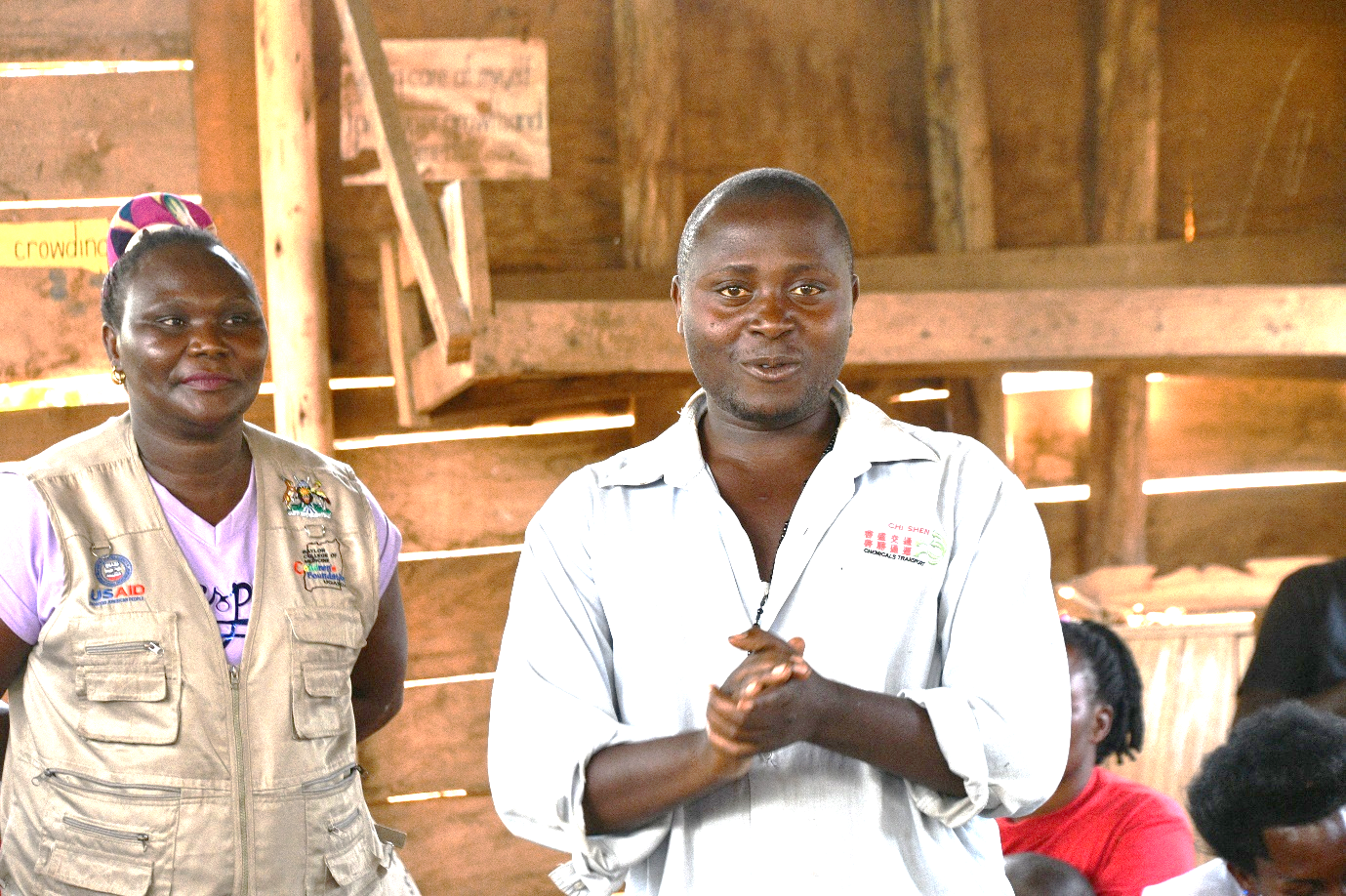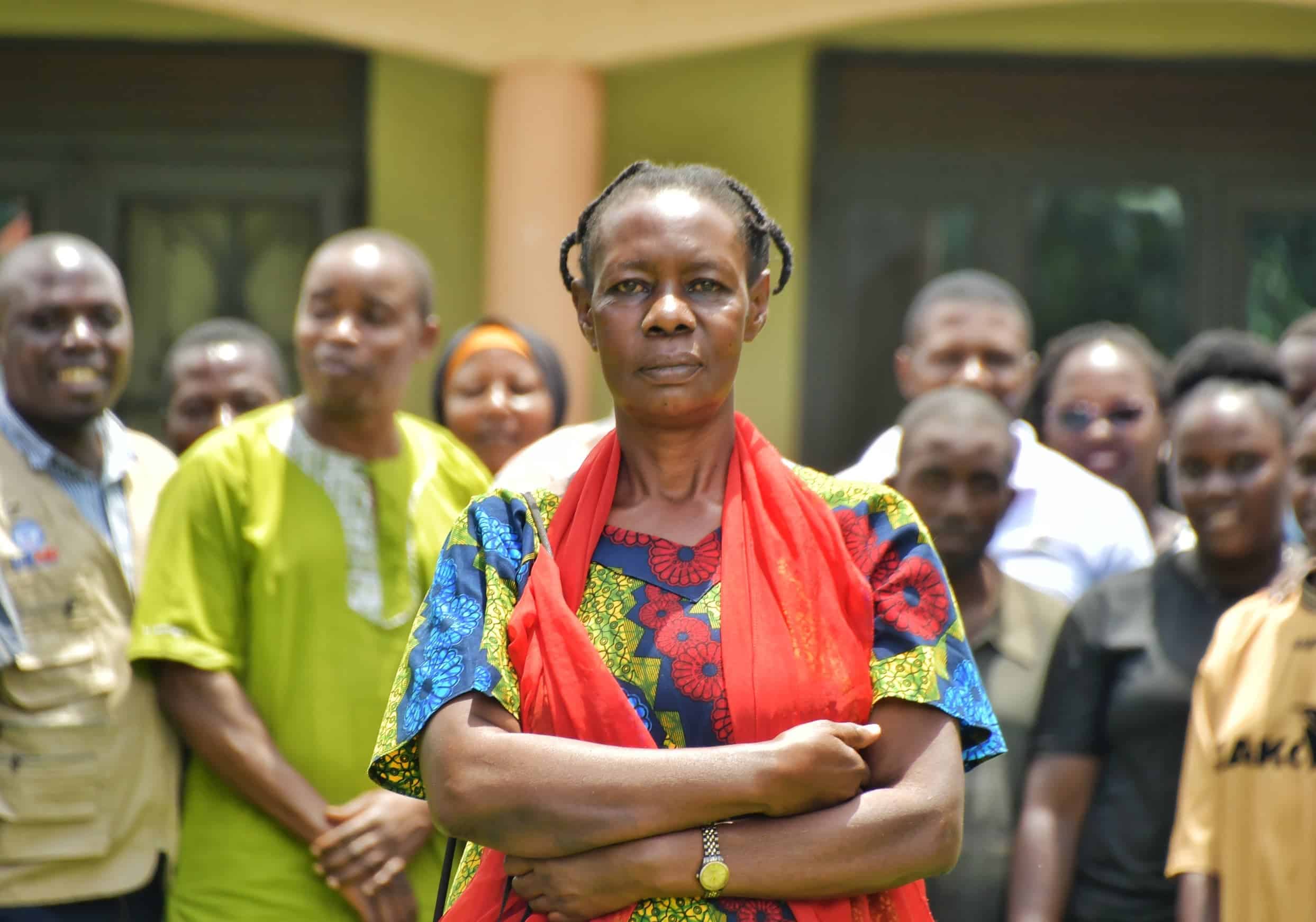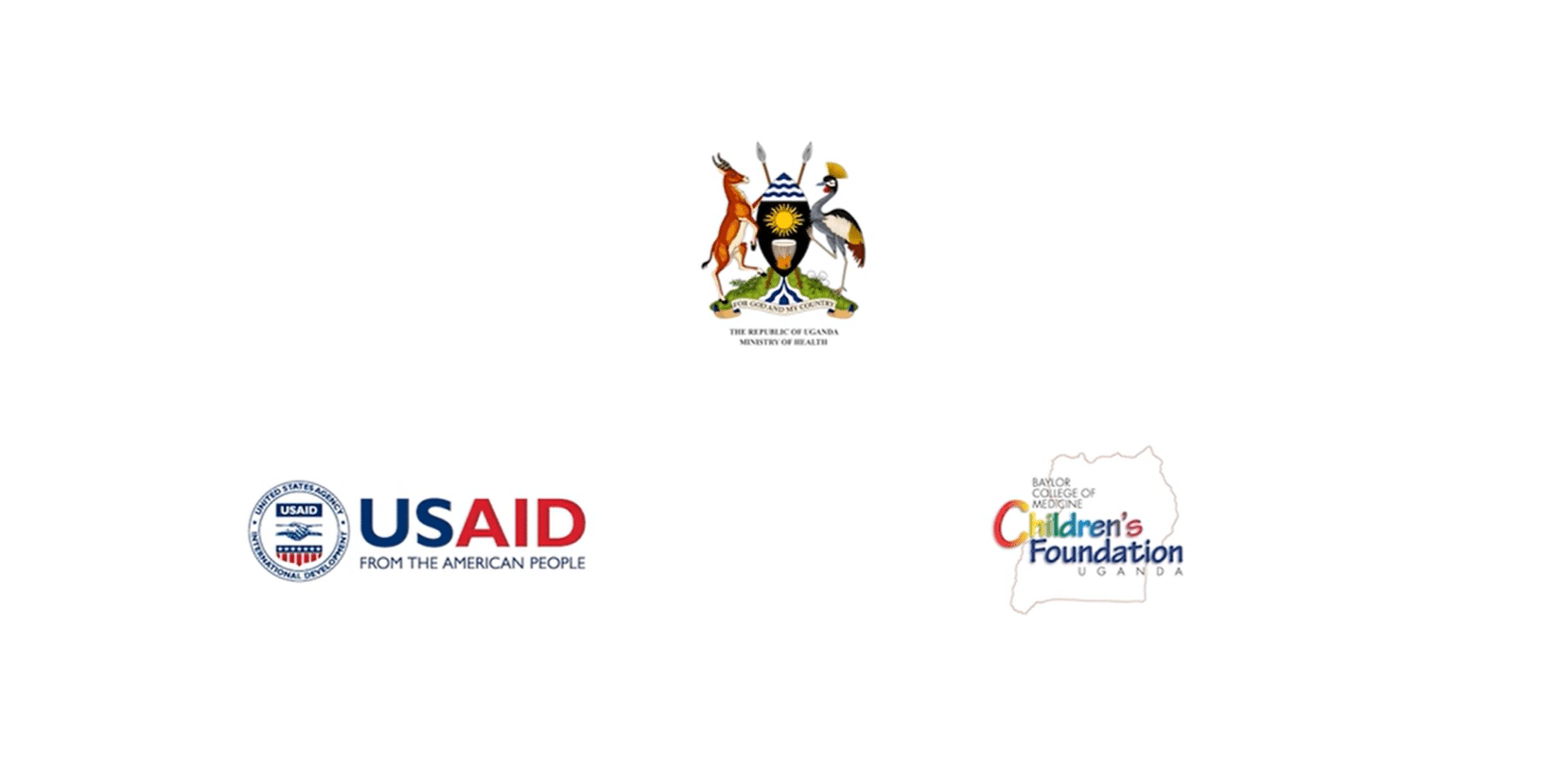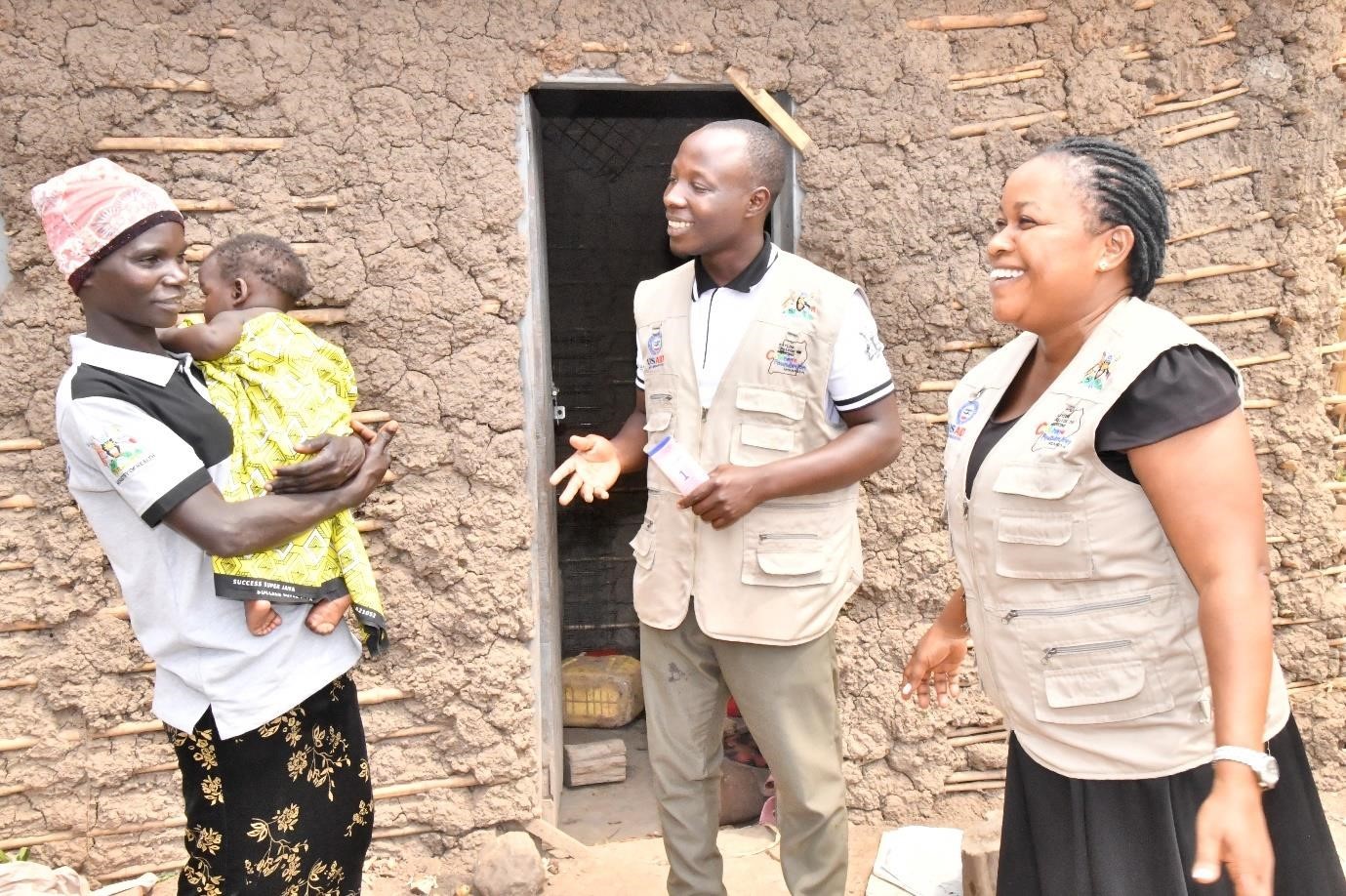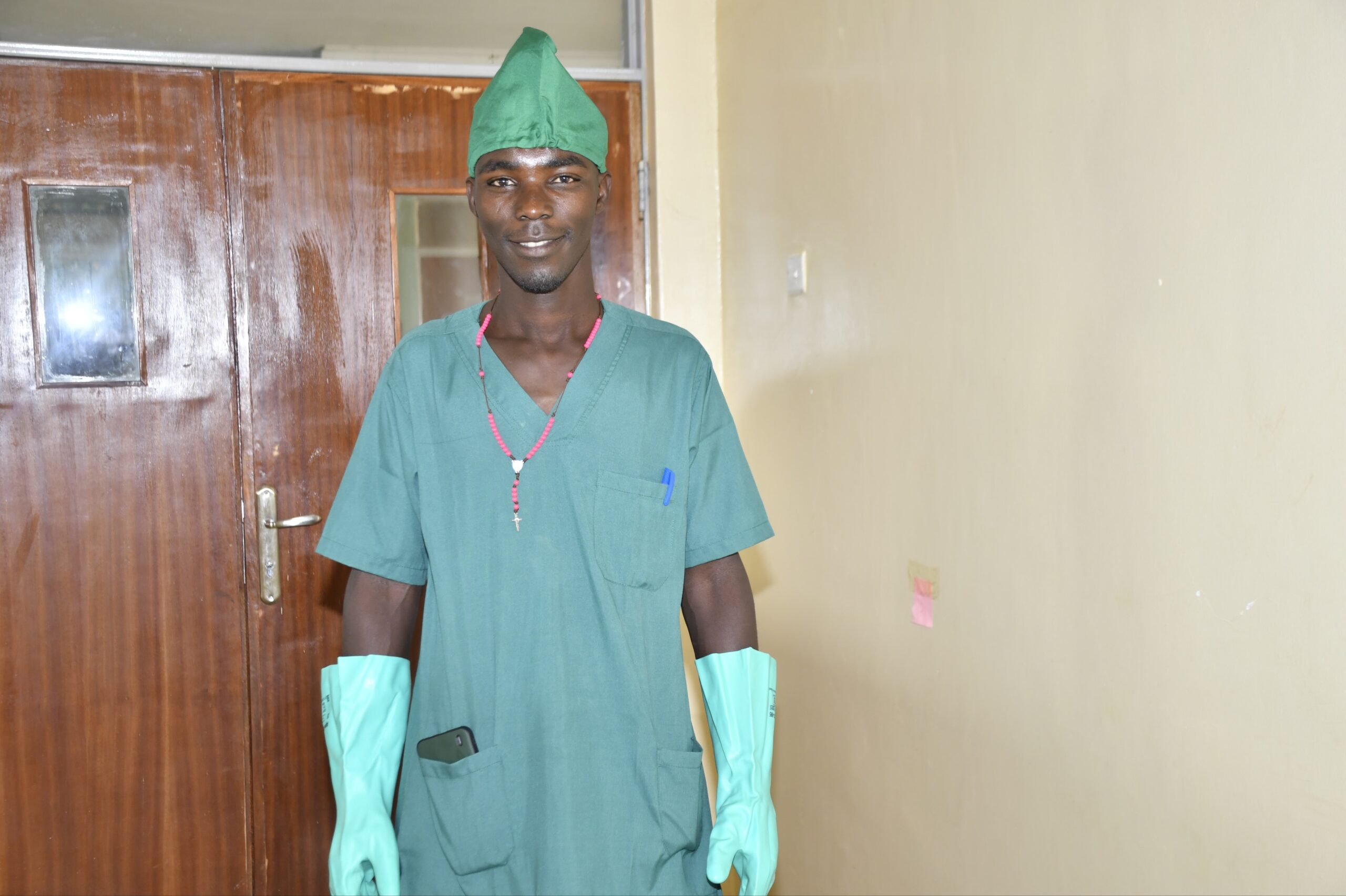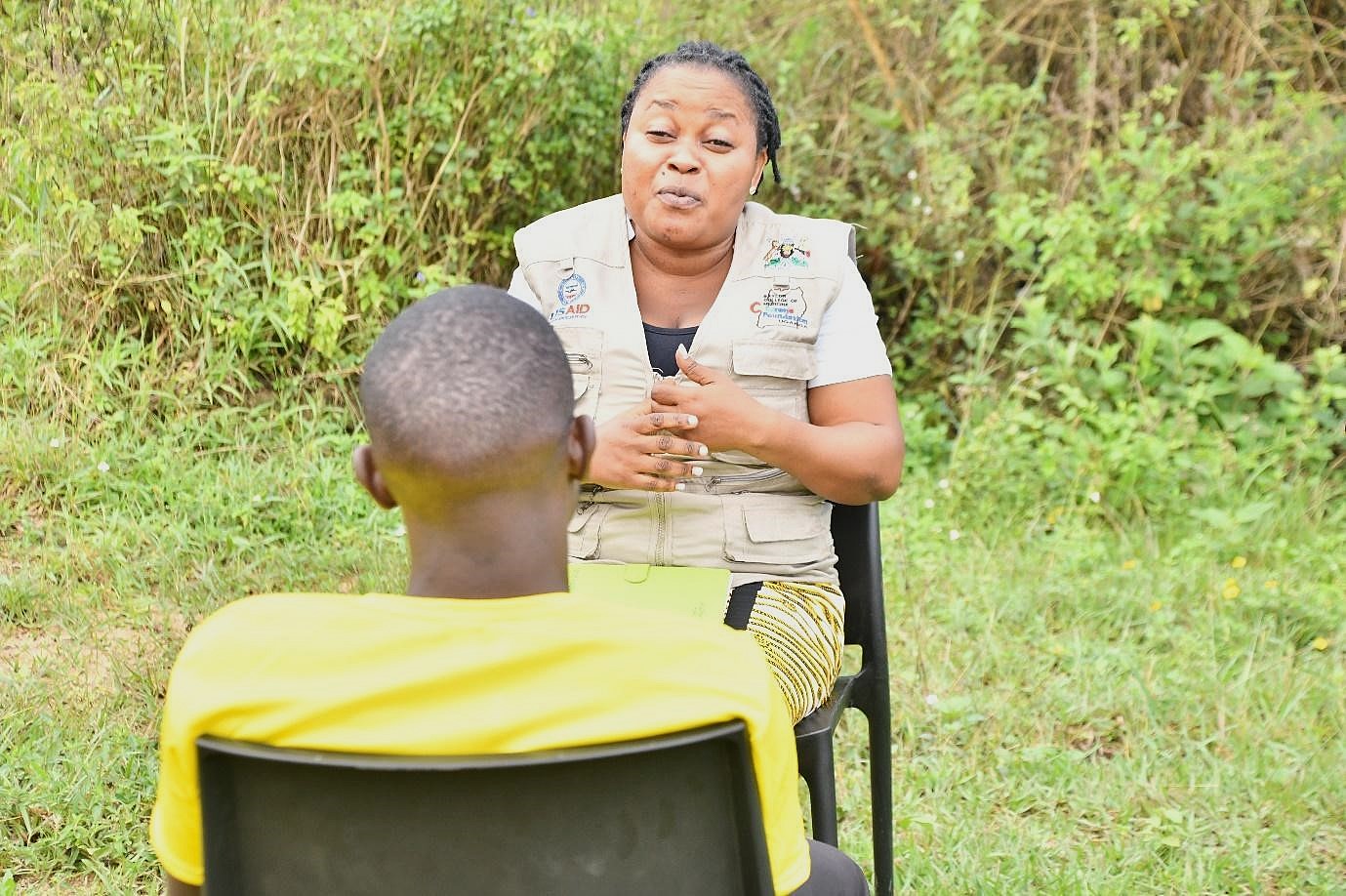Ronald Sentongo, 28, is a father of two young children, aged three and one, and a motorcycle ‘boda-boda’ transporter. He lives in Kalama B village in Kassanda district, one of the areas that was severely affected by the Ebola Virus Disease outbreak that was declared in Uganda by the Ministry of Health and the World Health Organization on September 20, 2022.
Ronald remembers the day he travelled to Madudu subcounty in Mubende district to pick up his friend’s ailing wife. He transported her to a clinic in his hometown with her sister-in-law sitting behind to support her fragile body. Unfortunately, one day later, she passed away.
It was on this unfortunate day that Ronald started to experience a fever, general body weakness and joint pains that worsened over the course of the following few days, leading to a headache, stomach discomfort, and diarrhoea. He sought medical treatment at a nearby clinic but did not get any relief. That is when he met the Local Council (LC) Vice Chairperson who informed him about the Ebola outbreak in Kassanda district and advised him to seek medical attention at Mubende Regional Referral Hospital (RRH). “The following day, I went to the hospital, a decision I believe saved my life,” says Ronald.
When Ronald arrived at Mubende Regional Referral Hospital, he was immediately isolated and a blood sample was taken from him. When the test results revealed that he had Ebola, he was immediately taken to the Ebola Treatment Unit (ETU) and treatment was initiated.
After a couple of days, Ronald was thrilled to leave the ETU. However, his joy was short-lived when he returned home and encountered stigmatization from his own community, which still thought he was contagious. He was further crushed to the core and felt hopeless when this same treatment was directed to his innocent family members.
Fortunately, a team from the National Ebola Virus Survivors’ Program implemented by Baylor-Uganda under the leadership of the Ministry of Health and with United States Government funding reached out to him in his community. “The psychosocial team organized a community dialogue to let the community know that I had recovered from Ebola,” says Ronald. As a result, the community began to accept him and all those who had previously shunned him, singled him out, written him off as a former Ebola patient, and refused to fetch water at their borehole began to re-engage with him.
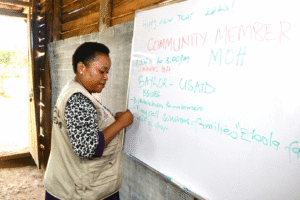
Faith, MHPSS counsellor notes issues raised by survivors and community members as they share their post-Ebola experiences.
According to Faith Kakai, a mental health and psychosocial support counsellor working with Baylor-Uganda, “the provision of medical services to deal with the after-effects of the Ebola virus and the provision of psychological care have helped survivors adjust to the changes in their lives”. “The symptoms of anxiety, depression, and post-traumatic stress disorder (PTSD), stigmatization and prejudice in the community, are also being addressed in the host communities of survivors through individual and family counselling sessions and community dialogues”, she adds. The National Ebola Survivors’ Program has conducted 51 community dialogues to dispel myths and misconceptions about Ebola survivors, enabling them to reintegrate into their communities.
